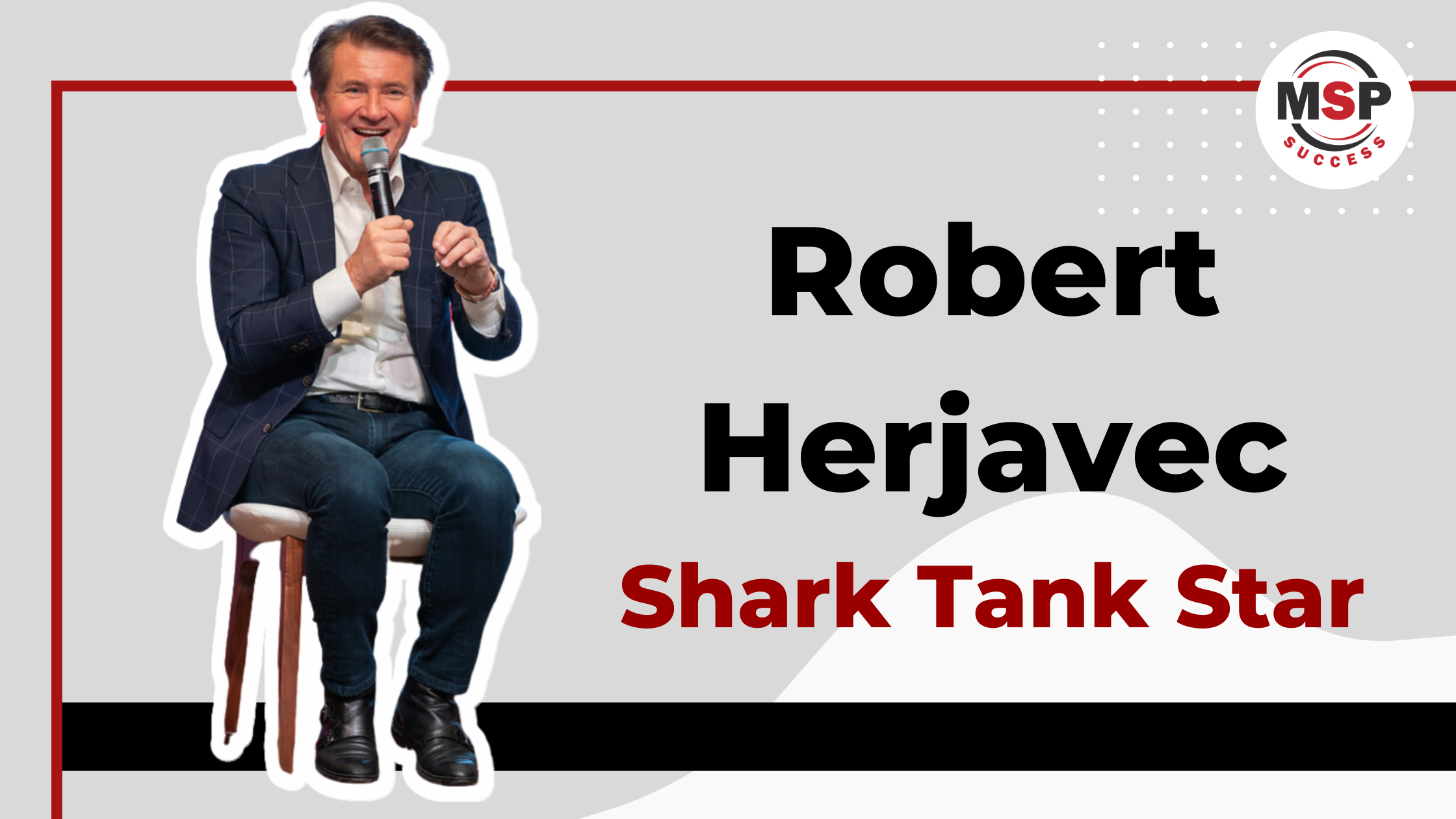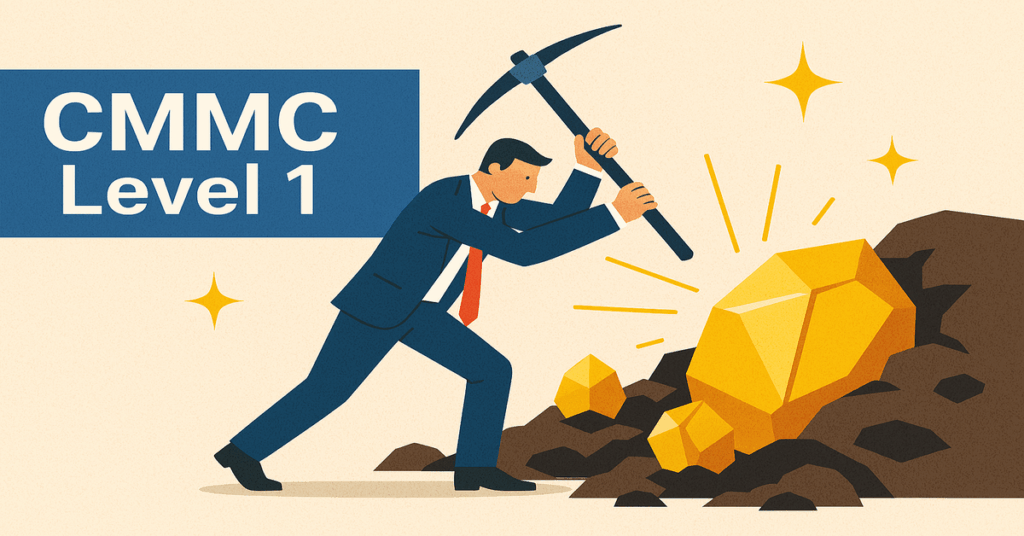From The CEO Of The World’s Leading MSSP, And One Of TV’s Millionaire ‘Sharks,’ Robert Herjavec
During a TMT event sponsored by RocketCyber, a Kaseya company, guests were invited to visit the impressive headquarters of Robert Herjavec’s MSSP, Cyderes, in Kansas City. The company is one of the most dynamic managed security services providers in the world with six global Security Operations Centers, top technology partners, and a dedicated team of cybersecurity experts. Herjavec spent several hours sharing his wisdom with TMT’s top-tier clients, discussing one of the most asked-about topics: how to sell.
“Sales cures all ills,” Herjavec said. “When you get a customer, you have time to figure out how to do accounting better, how to give better service, and so on, but you need to figure out sales immediately because you need sales today.”
Robert Herjavec has been doing security since he was 21 years old. “I wish I knew then what I know now,” Herjavec said, recalling his first IT company and when he started the Herjavec Group nearly 20 years ago.
As one of the top people in the world in cybersecurity, he launched his first computer company, BRAK Systems, from his basement, which he later sold to AT&T for $30 million. He went on to grow, buy, and sell other companies, including an IT company he sold to Nokia for $225 million. In 2003, he founded the Herjavec Group with co-founders George Frempong and Sean Higgins. “It was just the three of us, no secretary or anything,” Herjavec said.
They grew the company into one of North America’s fastest-growing technology companies and cybersecurity leaders. In 2022, Herjavec Group merged with Fishtech Group, launching the new Cyderes brand. In September, the cyber defense and response powerhouse announced it had already achieved 63% growth in the first half of the year.
During this event, one of the most coveted pieces of information Herjavec shared was the top seven strategies you can use to absolutely CRUSH your cybersecurity sales.
1. Focus On One Thing.
The Herjavec Group is the only company he ever started with a lot of money. But it was also his only company that lost a ton of money and grew slowly at the beginning.
“We had tons of money and you would think that would help us, but I wasn’t mature enough to understand how to use capital to grow a business,” Herjavec said. “When we had no money, we would sit around and say let’s do five things, but we couldn’t afford to do five things, so we picked one and became really great at that one.
When we started the Herjavec Group, we had tons of money, and we wanted to do five things. Guess what we did? We did all five. Four of them didn’t work out, so we lost months of time.”
2. Sales Must Be Ingrained In You And Within Your Business.
Businesses don’t fail to succeed because of a lack of money. If you have a good idea and start the business, you can figure it out, but you’ve got to have sales built into your organization from the beginning.
“No matter what size your business is, you’ve got to look at the sales motion,” Herjavec said. “The smaller the company, the more critical every dollar is. Sales is part science, part art.
The science part you can teach. I guarantee I could walk into everybody’s business here and fix the science part. The art part is you — your ability to sell, what you do in front of the customers, the things you say, the subconscious ability to sell, which is harder to learn.”
3. Go Where Your Customers Are.
Figure out where your customers are hanging out en masse, then go there and sell to them. Herjavec used to go to local Chambers of Commerce and tell them his company was one of the top cybersecurity companies. He’d offer to give a free speech if they would bring in their members and put on a lunch. “Find a way to get in front of those customers all at once because Google ads are really expensive,” he said.
4. Don’t Sell Something You Can’t Provide.
“The nature of what we all do is to provide uptime, provide security, provide stability, and enable our clients’ businesses to continue to function in an operational way,” Herjavec said. “But there is no bulletproof guarantee. No matter how good a job we do, a server can still go down, something can happen.”
5. Always Get A Meeting With The CEO Or Key Decision-Maker.
If you sell to the tech person at a company, that tech person becomes your salesperson. It’s much better for you to sell your services, so prospect with the CEO, then have the CEO refer you down to the tech person. “As a general rule, the higher you go, the better it is because even if you’re really successful at the tech level, that tech person has to go upstream and convince someone higher up,” Herjavec said.
6. Security Is No Longer A Technology-Driven Sale.
Before, when selling security, the technology that provided security drove the sale. Now, when selling security, there is a fallacy, especially with small-business owners, that no one is going to target their business.
What appeals to business owners is based on fear of loss; therefore, selling the uptime is what drives the sale. “Back then, it was a very technical sale,” Herjavec said. “Somewhere along the way, it completely pivoted to stop selling security and start selling risk management. Today, your customers don’t actually want to buy security from you. Nobody cares.
But every one of your customers wakes up every day worried about their business. And the shift has gone from a technology-based sale to a risk sale. I’ve realized what they really care about is their business … making more money, being profitable, and not going out of business. The key to what we and what you do is not that you sell them more stuff; it’s that you guarantee them more uptime.”
7. Change The Message.
If you are speaking with the CEO, they care more about the outcomes. If you are speaking to the tech people, present a message that focuses on how your service will benefit them. For example, to sell security to companies with internal IT, Herjavec asks the internal IT department if they are busy or if they show up to work with nothing to do.
They always reply that they are busy. Then he asks, “Do you want to be responsible for security? And if something happened in security, who do you think will get blamed?” He closes, saying, “By giving me the security, you’re offloading the risk of that, which allows you more time to do a better job on the things you were actually hired to do.”
Implementing These 7 Strategies Will Improve Your Sales. “Our sales team’s forecast looked great,” Herjavec recalled, “but then the order wouldn’t happen. One day, it hit me. The tech guys are telling them they’re getting the order, but the tech guy isn’t signing the check. No matter how much they told me puppy dogs and unicorns were going to show up tomorrow, I wouldn’t let them give up on booking that meeting with the CEO. Our close ratios went way up.”
To watch a clip from the Q&A panel during this incredible, exclusive event, go to: MSPSuccessMagazine.com/Q&A
See what attendees thought of this EPIC day:

“There are only two reasons you should sell your business: 1) if it’s going to be a life-changing event with the money you’ll get, OR 2) you feel you can’t grow the business anymore.
“These are the three most important things for a healthy company: good revenue growth, low customer churn, and high gross margins.
“The minute we get a sale, we should position ourselves for an upsell.”
Ash Pirwani President, eNet Systems

“We need to stop selling security and start selling RISK MANAGEMENT.”
Daniel Silva CEO, Vision Computer Services

“Managed services provide ‘optionality.’ Businesses don’t have to invest in people and equipment, which is a sunk capital cost/investment if it doesn’t work out. MSP is an operational cost companies can try, and if doesn’t work out, they have the option to try another service provider or go to the capital cost. In a good economy, businesses may think they will just do it themselves — buy the server, hire the guy, etc., but in a bad economy, the MSP model provides better flexibility for the business.”
Derek Anderson President & CEO, Biztek Solutions, Inc.

“As big as you think you can get, you can actually get bigger.
“Culture is directly tied to the leader. Your people will always follow your lead.
“People buy the promise of something more than the actual product.”
Lisa Shorr Owner, Secure Future Tech Solutions

“The upcoming poor economy is going to have a significant negative impact on all business sectors except IT managed services.”
Todd Clark President, DenaliTEK, Inc.

“I need to be thinking bigger. Going to Cyderes gave me a new perspective on what I can build in terms of an office environment, team, and culture. As our company moves to serve middle-market companies versus small businesses, this visit gave me a better vision and clearer goals for my company’s future.”
Bryan Hornung CEO, Xact I.T. Solutions

“Approach the C-Suite as a risk management conversation when talking about cybersecurity.”
Peter Horewitch President, Common Knowledge Technology

“No matter how big or small your company is, it’s all about knowing your numbers and managing with them in mind.”
Tim Conard President, TS Conard, Inc.

“SALES are what drive your company. Focus on sales — operations and finance will fall into place.”
Mandy Parker Owner, Impress Computers

“Keep selling. Don’t slow down because you have issues with operations … keep selling.”
Chad Holstead Owner, Business Knowledge Systems, LLC

“Sales cover a lot of woes.”
Grant Dakin President, SolidTechnology Solutions, Inc.










